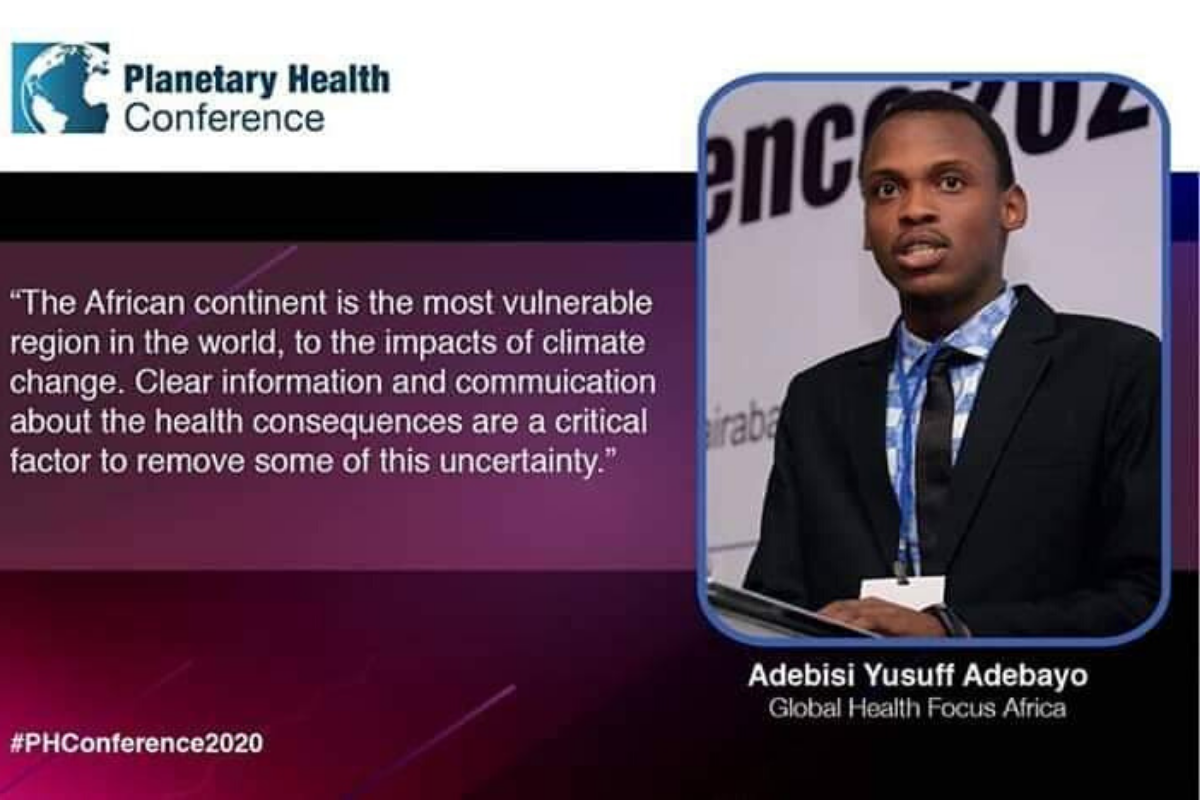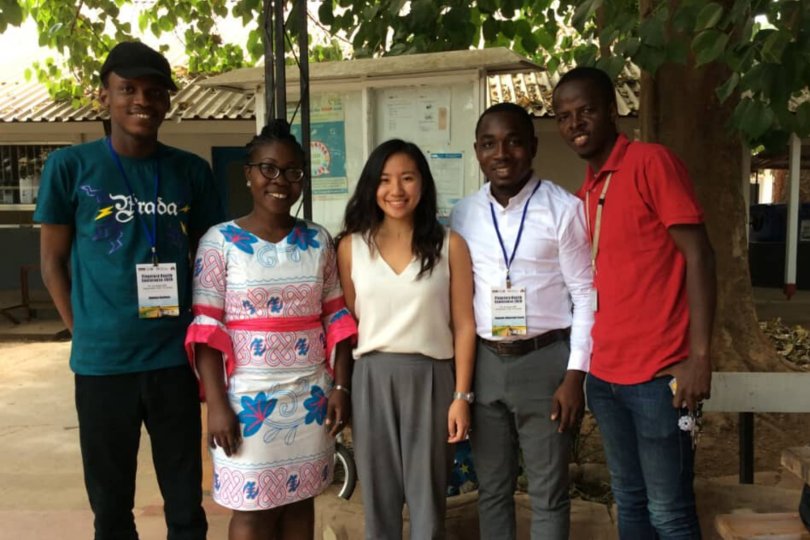Planetary Health Conference 2020
Adebisi Yusuff Adebayo is an RSTMH Student Ambassador from the University of Ibadan, Nigeria and the Associate Director for Research at Global Health Focus. He attended the maiden edition of Planetary Health Conference in Banjul, The Gambia in January 2020.
The Planetary Health Conference 2020 was hosted by the Medical Research Unit, The Gambia at the London School of Hygiene and Tropical Medicine in partnership with the Government of The Gambia and the Centre for Climate Change & Planetary Health, co-chaired by Professor Alan Dangour and Professor Martin Antonio.
The theme of the conference was ‘Climate change and planetary health in West Africa: reviewing the evidence, identifying gaps, finding solutions.’ Key topics, such as food security, infectious diseases, sustainable cities, direct heat impacts, and air pollution as they relate to climate change were addressed through a selection of presentations and panel discussions.
The conference brought together the scientific community, government bodies and climate health activists to reflect on what is known about climate change in West Africa, describe gaps in knowledge and prioritise the research agenda for the future. The event was able to unite scientists, advocates and policy makers, to ensure actions are taken regarding climate change in African – a region described by the United Nations Intergovernmental Panel on Climate Change as the major hotspot for climate change in the world.

At the conference, I presented in the planetary health session on the research and knowledge gaps regarding climate change and health in West Africa. The aim was to reinforce the need for the planetary health conference as a platform to review evidence and identify the gaps in climate change research for more effective and sustainable action.
My presentation highlighted the necessity of mentorship and training of young scientists and professionals to facilitate the development of a new cadre of climate change and planetary health experts in West Africa. Emphasizing the need of active involvement of young people in climate change initiatives and their much-needed roles in creating a sustainable future for themselves, my argument also included the need to embed climate change in secondary and tertiary education systems.
There is a need for concerted efforts on the part of African governments, funders, health administrators and health workers to ensure that necessary attention is given to multidisciplinary research on the subject, enabling meaningful control measures to be formulated. Insufficient research and a lack of urgency in the response is putting lives and livelihoods in the region at risk. It is time to take urgent, proactive approaches to understand the impacts of current and projected environmental change on health. Climate change’s impact on health is real and it’s everyone's business.
Presentations
The presentations and panel discussions has been wide ranging and covered subjects from funding to the need to build capacity to address climate change issues and its impact on the continent. I have attended the following talks among the many available at the conference:
Prof Brama Kone of the Swiss Center for Scientific Research in Côte Ivory called for more collaboration to encourage and support more academic careers in climate change research.
Kallista Chan, PhD candidate at London School of Hygiene and Tropical Medicine, shared her research findings about the links between rice cultivation and malaria vectors.
Dr. Sokhna Thiam, Health Geographer and Epidemiologist at the Swiss Tropical and Public Health Institute shared her research on climate factors and childhood diarrhea, which revealed the little evidence exists to support the hypothesis that the association between climatic factors and diarrheal incidence differs between rural and urban areas.
Dr Branwyn Poleykett, Research Fellow at the Wellcome Centre for Cultures and Environments of Health shared research from Dakar, zooming into sustainable eating and food as global commons.
Dr Olabode Ekerin from the Wise Up Initiative and Alistair Mukondiwa from the International Federation of Medical Students Associations (IFMSA) shared interesting recommendation on the need to inculcate climate change and its health impacts in medical school curriculum.

The conference presented a great opportunity for bringing together the scientific community, government bodies and climate health activists. It focused on the impacts of current and projected environmental change on health and human wellbeing, showcasing and stimulating existing and new planetary health research conducted in West Africa.
“It is clear that ongoing environmental changes, including higher temperatures, less predictable rainfall and rising sea levels will have significant impacts on global health. Much of the conversation concerns how we can protect people in the future, but in West Africa, these effects are taking place now. Increased desertification, the degradation of natural resources and food insecurity is having an adverse effect on the economy and quality of life. We must act now.”
Professor Martin Antonio from the MRC Unit The Gambia at LSHTM and conference co-chair

